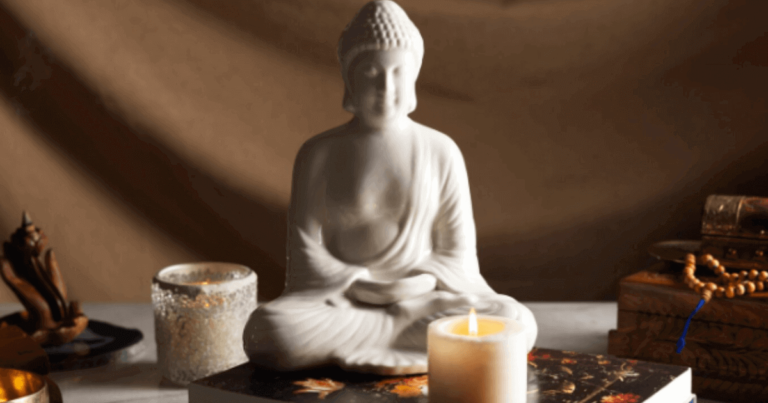Boost Inner Peace: Master Your Circle of Control for Balance

Feeling overwhelmed by life’s uncertainties? Do external factors constantly leave you stressed and anxious? If so, it’s time to embrace the concept of the Circle of Control. This powerful framework empowers you to focus on the things you can influence and let go of those you can’t.
In the whirlwind of life, it’s easy to feel overwhelmed by external forces. Bills pile up, deadlines loom, and unexpected events can throw our plans into disarray. It’s during these times that the concept of the “Circle of Control” becomes especially important.
This article dives into the Circle of Control, an effective idea that can remodel the way you approach life’s hurdles. By understanding what you may have an impact on, you may advantage the gear to navigate challenges with sharper awareness and reap more internal peace.
Table of Contents
Circle of Control: What is it?
The Circle of Control is a framework popularized by Stephen Covey in his book “The 7 Habits of Highly Effective People.” It divides our world into two spheres: the Circle of Concern and the Circle of Control.
- Circle of Concern: This encompasses everything that affects us, both positive and negative. It includes things like the economy, weather, other people’s actions, and world events. These are factors outside our direct control.
- Circle of Control: This represents the things we can directly influence. It includes our thoughts, actions, behaviors, and choices. This is where our power lies.
By specializing in our Circle of Control, we empower ourselves to navigate existence’s demanding situations with more resilience and inner peace.
What’s Inside Your Circle of Control?
Your Circle of Control encompasses a wider range of things than you might initially think. Here are some key areas:
- Your Thoughts: You can choose your perspective on situations, manage negative self-talk, and cultivate a positive mindset.
- Your Emotions: While you can’t control external factors that trigger emotions, you can control how you react to them through mindfulness and emotional regulation techniques.
- Your Actions and Behaviors: This includes your work ethic, daily habits, how you treat others, and the choices you make.
- Your Health: You have significant control over your physical and mental well-being through your diet, exercise, sleep, and stress management strategies.
- Your Surroundings: You can curate a positive environment by organizing your workspace, surrounding yourself with supportive people, and establishing boundaries.
- Your Communication: How you communicate your needs and express yourself significantly impacts relationships.
Why Inner Peace Matters?
Inner peace is a state of mental and emotional calmness, characterized by a sense of serenity, acceptance, and well-being. It doesn’t mean the absence of problems, but rather the ability to respond to them with a sense of composure and clarity.
Here’s why inner peace is crucial:
- Improved Mental and Physical Health: Chronic stress, often caused by dwelling on things outside our control, can lead to a cascade of negative health effects. Inner peace helps us manage stress effectively, promoting better mental and physical well-being.
- Enhanced Relationships: When we’re at peace, we’re better equipped to build and maintain healthy relationships. We become more patient, understanding, and less reactive to external triggers.
- Increased Productivity: Inner peace allows us to focus our energy on what matters most. We’re less likely to be distracted by worries and anxieties, leading to increased productivity and goal achievement.
- Greater Sense of Well-being: Inner peace fosters a sense of contentment and fulfillment. It allows us to appreciate the present moment and savor life’s experiences.
The Power of Focusing Within Your Circle
By focusing on what’s within your Circle of Control, you unlock a multitude of benefits:
- Reduced Stress and Anxiety: Worrying about things outside your control is a recipe for stress. Focusing within your circle allows you to invest your energy where it counts.
- Increased Confidence: Taking ownership of your actions and choices builds confidence. Seeing positive results from your efforts reinforces your ability to influence your life.
- Enhanced Problem-Solving: Focusing on controllable aspects allows for a more productive approach to challenges.
- Greater Resilience: Life inevitably throws curveballs. By mastering your Circle of Control, you’re better equipped to bounce back from setbacks.
- Empowerment: Understanding where your influence lies fosters a sense of control and personal agency.
Mastering Your Circle of Control: Practical Strategies
Now that we understand the importance of focusing on our Circle of Control, let’s explore practical strategies to achieve it:
1. Identify Your Circles
Take some time to reflect on your own life. Make a list of things that concern you, then categorize them into your Circle of Concern and Circle of Control. This exercise helps visualize where your energy is being directed.
2. Challenge Your Thoughts
We often get caught up in negative thought patterns that fuel anxiety and worry. Practice cognitive reframing, a technique where you challenge these unhelpful thoughts and replace them with more realistic and empowering ones.
3. Practice Acceptance
There will always be things outside our control. Instead of resisting these situations, practice acceptance. Acknowledge them for what they are and focus on how you can respond in a healthy way.
4. Embrace Responsibility
Take ownership of your actions and choices. When things go wrong, don’t dwell on blame; instead, focus on what you can learn and how you can improve in the future.
5. Set Realistic Goals
Setting unrealistic goals can lead to frustration and a sense of powerlessness. Set SMART goals (Specific, Measurable, Achievable, Relevant, and Time-bound) that are within your control.
6. Practice Mindfulness
Mindfulness meditation helps us become more aware of our thoughts and feelings without judgment. By observing them objectively, we can detach from negativity and cultivate inner peace.
7. Develop Healthy Habits
Prioritize self-care practices like getting enough sleep, eating a balanced diet, and exercising regularly. These habits provide a foundation for physical and mental well-being, contributing to inner peace.
8. Set Boundaries
Learn to say “no” to protect your time and energy. Setting healthy boundaries with others allows you to focus on what matters most in your Circle of Control.
9. Practice Gratitude
Focusing on the things you’re grateful for fosters a positive outlook and sense of contentment. Regularly practicing gratitude can significantly enhance your inner peace.
10. Seek Support
Don’t be afraid to seek support from friends, family, therapists, or support groups. Talking about your challenges can offer valuable perspectives and help you feel less alone.
Mastering your Circle of Control is a continuous process. There will be times when you lose focus, and that’s okay. The key is to be kind to yourself, acknowledge your slip-ups, and gently redirect your attention back to your Circle of Control.
Living Your Best Life Within Your Circle with Inner Peace
By focusing for your Circle of Control, you domesticate inner peace and empower yourself to navigate lifestyles’s challenges with more resilience and purpose. Here’s how this newfound peace interprets into a greater satisfying life:
- Increased Confidence: When you know you can influence your reality, your confidence soars. You approach challenges with a sense of empowerment, believing in your ability to find solutions.
- Enhanced Creativity: Inner peace fosters a state of openness and curiosity, which are vital for creative thinking. You’ll find yourself generating new ideas and approaching problems from innovative angles.
- Greater Sense of Purpose: When you’re focused on what you can control, you become more intentional with your actions. You’ll find yourself drawn to sports that align along with your values and desires, growing an experience of motive and direction in existence.
- Deeper Appreciation: Inner peace allows you to slow down and savor life’s experiences. You become more present, appreciating the little things and finding joy in everyday moments.
- Growth Mindset: Embrace a growth mindset, believing you can develop your abilities and improve your Circle of Control over time.
- Continuous Learning: Continuously learn and develop new skills to expand your Circle of Control.
- Celebrate Your Wins: Acknowledge and celebrate your progress within your Circle of Control
- Seek Support: Don’t be afraid to seek support from friends, family, or a therapist for additional guidance.
Conclusion
Life is a steady dance among the matters we are able to and can’t manage. By mastering your Circle of Control, you unencumbered the important thing to inner peace, a nation of nicely-being that empowers you to stay a greater pleasing and significant lifestyle. Remember, the adventure closer to inner peace is a non-stop one. Embrace the process, celebrate your victories, and don’t be discouraged by setbacks. With dedication and these realistic strategies, you may domesticate inner peace and come to be the architect of your very own happiness.






